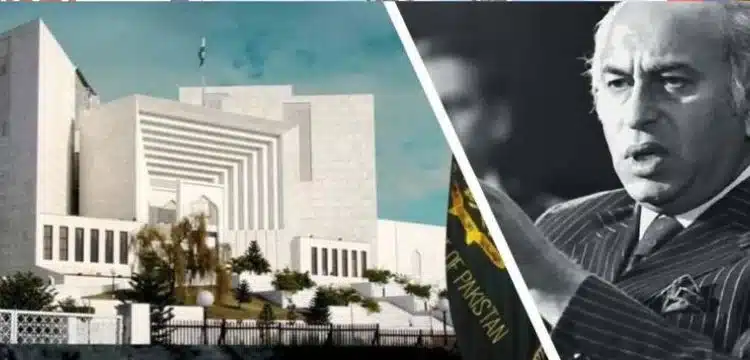[vc_row][vc_column][vc_column_text dp_text_size=”size-4″]The Supreme Court, in a decision on a presidential reference, declared that the trial of former Prime Minister Zulfikar Ali Bhutto for murder did not meet the standards of a fair trial. The larger bench of the Supreme Court released the reserved order, addressing five specific questions raised in the presidential reference filed by former President Asif Ali Zardari. The questions encompassed the fairness of the murder trial, the judicial precedent set by the Supreme Court’s decision on the execution, the fairness and impartiality of Bhutto’s death sentence, the rationale of the death sentence according to Quranic principles, and the sufficiency of evidence against Bhutto.
The court’s decision marks a significant development in the history of Pakistan, as Zulfikar Ali Bhutto remains the only former prime minister in the country’s history to be hanged. Chief Justice of Pakistan Qazi Faez Isa led the bench during the hearing, and the short order was announced with PPP Chairman Bilawal Bhutto present in the courtroom.
Read more: Bilawal Bhutto Unveils Ambitious 10-Point Manifesto Ahead of General Elections
The presidential reference was filed in 2011, seeking the Supreme Court’s opinion on the death sentence awarded to Zulfikar Ali Bhutto. The Lahore High Court had sentenced Bhutto to death in 1978 for allegedly ordering an assassination attempt. The reference raised concerns about the fundamental rights guaranteed under the Constitution. During the hearing, the government expressed efforts to investigate the departure of Masood Mehmood, a former chief of the Federal Security Force and an approver in the case, to the United States. The decision brings attention to the legal intricacies of one of the most significant trials in Pakistan’s history.[/vc_column_text][/vc_column][/vc_row]











